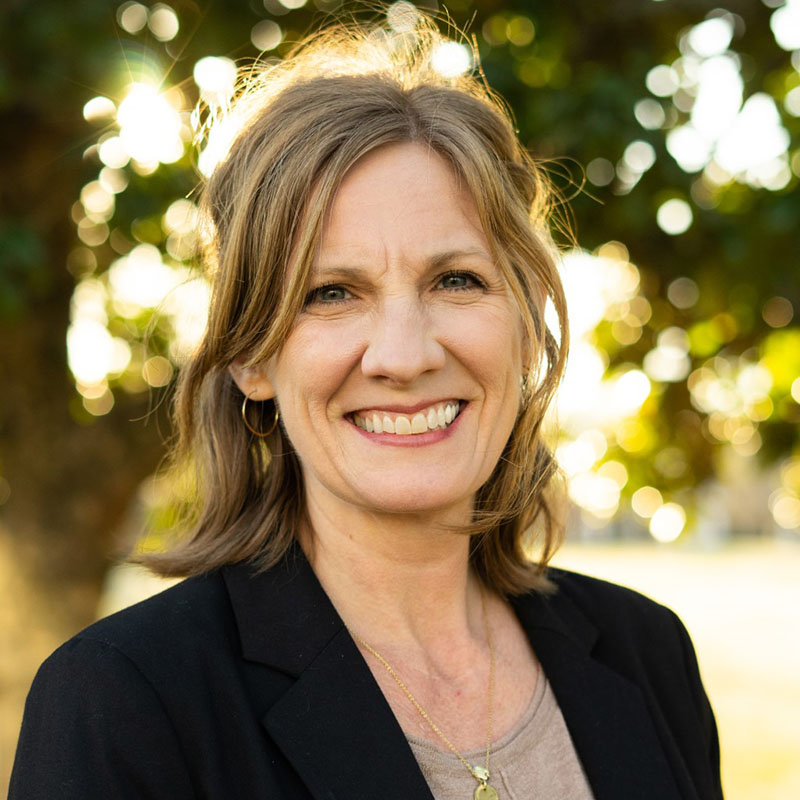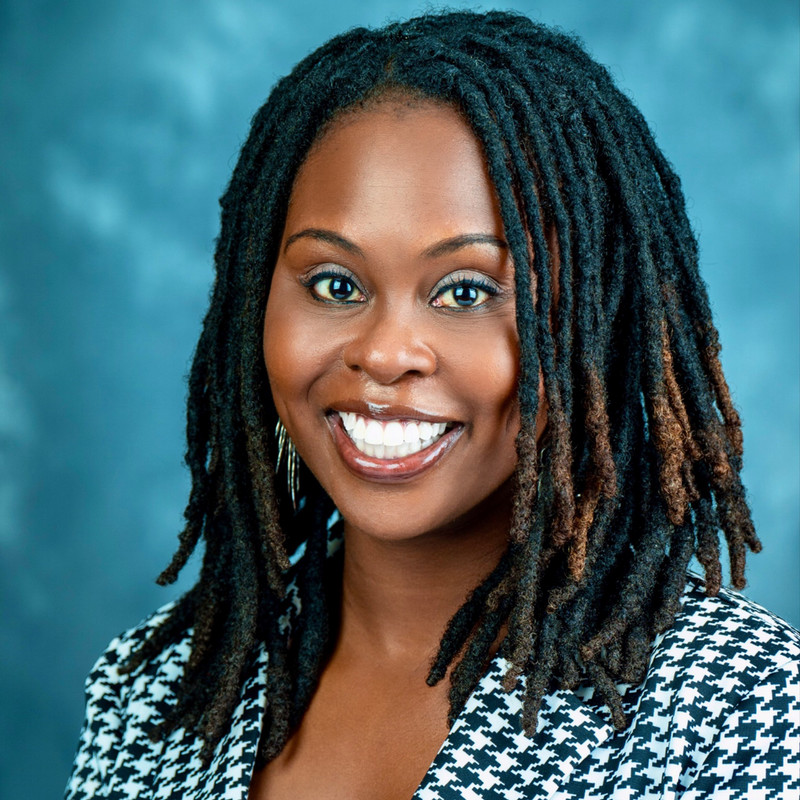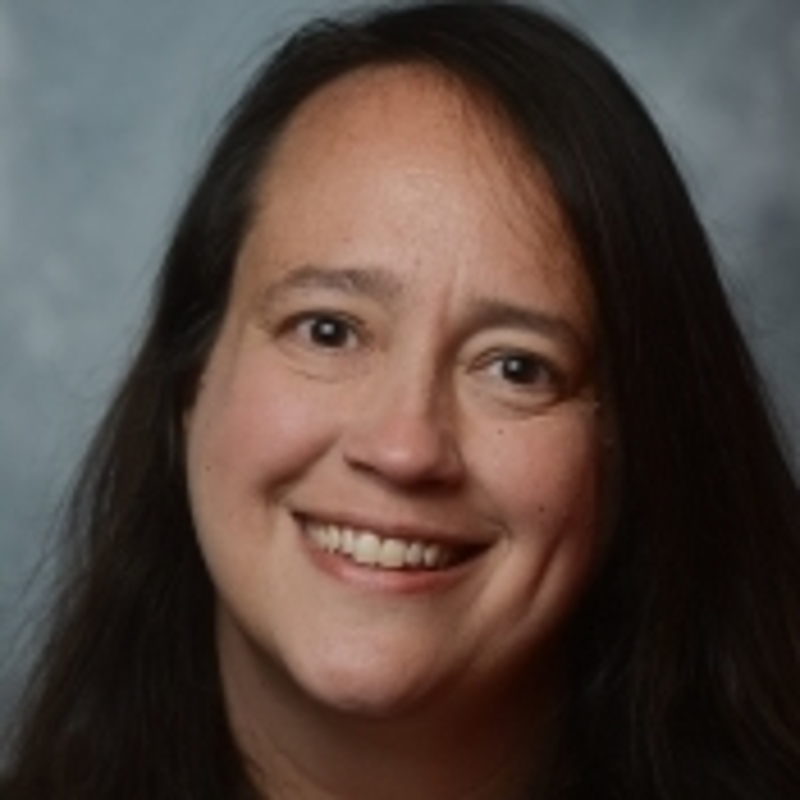Why Choose Belmont’s Bachelor of Social Work Program?
 Belmont's bachelor’s degree in social work offers students many opportunities for active learning, field placements and engagement in a variety of non-profit, government and grassroots settings. Our program is accredited by the Council on Social Work Education, ensuring your education meets the highest national standards.
Belmont's bachelor’s degree in social work offers students many opportunities for active learning, field placements and engagement in a variety of non-profit, government and grassroots settings. Our program is accredited by the Council on Social Work Education, ensuring your education meets the highest national standards.
As a student earning your social work bachelor’s degree at Belmont, you will:
- Learn from award-winning faculty who are experienced practitioners in diverse areas of social work.
- Engage in hands-on learning and field placements in non-profit, health care, government and community-based settings.
- Build strong professional networks through community partnerships across Nashville.
- Prepare for licensure and graduate-level studies through our 4+1 BSW to MSW pathway.
- Develop the skills and confidence needed to create positive change — in your community and beyond.
Request Information
Hands-On Learning & Community Engagement
Belmont’s Social Work Bachelor Degree emphasizes learning by doing. From your first semester, you’ll connect classroom theory with real-world practice through community-based experiences.
Through our partnerships with local organizations, students gain field experience working directly with individuals and groups facing social challenges. You’ll apply your intervention skills in settings such as:
- Mental health and health care agencies
- Youth and family services
- Homeless outreach and housing programs
- Community and grassroots organizations
Belmont’s prime Nashville location gives you access to diverse, high-impact learning environments. Our students consistently earn praise from community partners for their professionalism, empathy, and readiness to lead in social welfare and human service roles.

4+1 Pathway to the MSW Program
Earning your bachelor of social work degree at Belmont sets you up for success beyond graduation. Our 4+1 advanced standing program allows you to complete your Master of Social Work (MSW) in just one additional year.
This accelerated MSW program combines cutting-edge coursework with applied learning to prepare you for advanced practice and leadership in trauma-informed care, community engagement, and social policy.
You’ll graduate ready to pursue licensure and make an even greater impact in the field.
What You'll Learn in Belmont’s BSW Program
The bachelor of social work program at Belmont integrates classroom instruction, research, and experiential learning grounded in Belmont’s commitment to Christian values and social justice. You will:
- Practice professionalism grounded in social work ethics and values
- Advance equity, diversity, and inclusion initiatives in your community
- Conduct research and policy analysis to inform social change
- Develop intervention and assessment skills for multiple client populations
- Engage, assess, intervene, and evaluate across practice settings
- Promote anti-racist and trauma-informed care
Program Details
Curriculum
The Bachelor of Social Work (BSW) degree is designed to be completed in four years and requires 128 hours of coursework. The final year includes the start of the intensive 450-hour field placement experience, which in social work is referred to as Field Education.
- BELL Core requirements: 50 hours
- Social Work Major requirements: 54 hours
- General electives: 24 hours
A Partial List of Courses You'll Take
These are example courses. For a full list, click the program requirements link above.
SWK 2000 Introduction to Social Work
A study of the origins, structure and characteristics of social work services, social welfare policies and the social work profession. In addition to other course requirements, the student must complete 15 clock hours of service learning in a social service agency.
SWK 2050 Social Work Research
This is an introduction to the methods of scientific inquiry and their relevance to social work. Topics include research design, problem formulation, measurement, data analysis and ethics in research. Fundamentals of analyzing research reports will also be emphasized as well as knowledge of APA formatting, evidence-based practice and statistical applications.
SWK 2250 Human Behavior and Social Environment
This course examines the biological, psychological and social development of the individual at different lifespan stages. Students learn about human behavior from the perspective of developmental milestones as well as environmental, societal and cultural issues and contexts.
SWK 2300 Exploring Human Diversity
This course explores human diversity through examining the impact of “isms” (racism, classism, religious oppression, heterosexism, sexism, ableism, ageism), socialization, biases, power and privilege, and ADEI (anti-racism, diversity, equity and inclusion). Students will develop an understanding of the complexities and challenges associated with human diversity in order to actively participate in creating a more equitable and just society.
SWK 3210 Social Work Practice I
This course, the first of three practice courses in the social work curriculum, is an overview of generalist social work practice at the individual, or micro, level of intervention. Students will explore the knowledge, values and skills associated with working in direct practice with individuals. Students will learn to effectively engage, assess and intervene in the context of diverse practice environments in order to provide competent and culturally responsive services to individuals.
SWK 3700 Professional Skills in Social Work
This course, designed for Social Work majors preparing for entrance into their field placements, provides an opportunity for students to discern the client populations and agency settings of their choice. Students will be interviewing and securing social work field placements during the course of this class. Additionally, this course focuses on the further development of the knowledge and skills of interpersonal communication when entering the field of social work.
SWK 4230 Crisis Intervention
This course is designed to equip social work students with the necessary knowledge, skills and ethical considerations to effectively respond, engage, assess and intervene with crisis situations that individuals, families, and communities may face. Through a blend of theoretical exploration, practical case studies and experiential exercises, students will develop an understanding of critical issues relevant to crisis intervention in a social work setting. Students will gain the knowledge, skills and confidence to help their clients manage when a crisis occurs.
As a social work student at Belmont University, you will have countless opportunities to flourish. These include service, leadership experiences, co-curricular educational programming and fun social events!
- Join the Social Work Student Association and begin to network with students who share your interests.
- Participate each year in Social Work Day on Capitol Hill in Nashville.
- Travel with faculty on the annual student trip to explore Social Work practice in other areas of the country.
- Gain experience in community assistance and support roles through service learning.
Council on Social Work Education
The Belmont School of Social Work is accredited by the Council on Social Work Education’s (CSWE) Board of Accreditation (BOA).
Accreditation of a baccalaureate or master’s social work program by the BOA indicates that it meets or exceeds standards of program quality evaluated through a peer review accreditation process. An accredited program has sufficient resources to meet its mission and goals and the BOA has verified that it demonstrates compliance with all sections of the Educational Policy and Accreditation Standards (EPAS). Accreditation applies to all program options, which includes locations and delivery methods.
Accreditation provides reasonable assurance about the quality of the program and the competence of students graduating from the program.
Review our program's accredited status in CSWE's Directory of Accredited Programs. For more information about social work accreditation, contact CSWE's Department of Social Work Accreditation.
State Licensure
Students completing the Bachelor in Social Work program are eligible to be licensed by many state professional licensing boards. Separate from educational requirements for licensure, state licensure boards may require applicants to complete professional examinations and background checks. Additional requirements, including documentation of internship and supervision hours, may vary.
The Bachelor of Social Work Program at Belmont University meets the educational requirements for BSW licensure as follows:
|
Positive Licensure Determinations |
Negative Licensure Determinations* |
No Licensure Determinations |
|---|---|---|
| Educational Requirements for State Licensure | Educational Requirements for State Licensure | Educational Requirements for State Licensure |
|
|
None |
*These states do not offer Social Work licensure at the Baccalaureate level
It is best to contact the appropriate licensing entity in each state a student seeks to be licensed in to identify information regarding additional licensure requirements. The Association of Social Work Boards provides helpful information in connecting with these agencies.
DeEbony Groves Social Work Diversity Scholarship
The DeEbony Groves Social Work Diversity Endowed Scholarship is an annual award designed to support the education of a Belmont Social Work major and contribute to the continued development of a diverse community of learners.
The diversity award was first distributed in the academic year 2014-2015, and in May of 2018 the name of the scholarship was changed to the DeEbony Groves Social Work Diversity Scholarship. The name was changed in honor and memory of one of our beloved student social work majors, DeEbony Groves. DeEbony’s life was taken too soon, but it is our hope and prayer that this award in her name will enable future students to achieve some of the same goals DeEbony had set for herself, particularly in the areas of appreciating, honoring and respecting diversity in all its dimensions.
This annual award is made possible due to the donations of alumni and other friends of the department who are committed to increasing diversity and awareness of diversity, and who want to honor DeEbony’s memory in this way.
Students who are interested in seeking the award will apply in the fall semester of each academic year. The application consists of a few brief demographic questions and an essay regarding the student's understanding of the importance of diversity in our profession.
The application for the award and the date it is due are released by October of each academic year. In accordance with University policy, we are unable to award the scholarship to a University College student.
The McWhorter Society Scholarship
Awarded annually to students in the Health Sciences, with demonstrated financial need, who exhibit academic excellence and are most eager and passionate about being part of leading change.
The Social Justice Minor includes 18 hours of Social Work course credit. Students minoring in Social Justice are not eligible to take advanced practice classes or participate in Field Education. Please see the catalog for detailed requirements.
What is Field?
Field education is the signature pedagogy in social work, the element of “instruction and socialization” (Council on Social Work Education [CSWE], 2022, p. 20) that teaches future social workers “to think, to perform and to act intentionally, ethically and with integrity” (CSWE, 2022, p. 20). The School of Social Work at Belmont University designs field education to be a two (2) semester sequence of courses in which the student applies conceptual knowledge gained in a classroom to practice with clients in a social work agency. Supervision of the student is provided by practitioners with either a BSW or MSW. Students complete 200 clock hours of work each semester, for a total of 400 clock hours of field instruction. The educational competencies and policies of field instruction conform to the 2022 Educational Policy and Accreditation Standard (2022 EPAS) of CSWE.
Field Partners
Outcomes & Alumni Success

Belmont’s Bachelor of Social Work (BSW) program prepares graduates to thrive in diverse careers dedicated to service, advocacy and social change. Our alumni work across government agencies, healthcare systems, nonprofit organizations, and community outreach programs, applying their Belmont education to make meaningful impact every day.
Many graduates continue their education through accelerated Master of Social Work (MSW) programs at Belmont and other top schools across the country. Others serve as policy advocates, mental health professionals, and nonprofit leaders, using their social work bachelor’s degree to create lasting community transformation.
Recent alumni employers include:
- Office of Family Safety – Nashville
- Bridges for the Deaf and Hard of Hearing
- Tennessee Department of Human Services
- Youth Villages
- Centerstone Mental Health Services
Committed to Your Success
The Belmont School of Social Work is dedicated to equipping students with the tools, experiences, and networks needed for success in today’s complex social work landscape.
Our program includes a professional development course focused on:
- Career preparation and personalized advising
- Workshops with social work professionals and community leaders
- Internship connections across healthcare, education, and public service organizations
Belmont students benefit from individualized guidance as they explore career paths and prepare for licensure or graduate study.
97% of College of Pharmacy & Health Science graduates are employed, pursuing continuing education, or enlisted in the military within 6 months of graduation and 97% of employed graduates are in positions that align with their short or long term career goals.
Learn more about Career & Professional Development at Belmont
Alumni Testimonials
Career Possibilities with a Bachelor of Social Work Degree
A social work degree opens doors to rewarding and versatile careers that make a tangible difference in people’s lives. Belmont’s bachelor’s degree in social work prepares you to succeed in both public and private sectors — from clinical practice to community leadership.
Common career paths include:
School social workers work with teachers, parents and school administrators to develop plans and strategies to improve students' academic performance and social development. They help students with problems such as aggressive behavior or bullying. Additionally, school social workers meet with families to discuss issues such as access to special education resources or frequent student absences.
Health care social workers help clients understand their diagnosis and adjust their lifestyle, housing or healthcare. For example, they may help people transition from the hospital to their homes and communities. In addition, they may provide information about services, such as home health care or support groups, to help clients manage their illness or disease. Social workers help doctors and other healthcare workers understand the effects that diseases and illnesses have on clients' mental and emotional health. Some healthcare social workers specialize in geriatric social work, hospice and palliative care or medical social work.
School and community service managers oversee programs that support public well-being and supervise service workers. They work for organizations that assist specific groups, such as children, older adults or veterans. Some focus on addressing challenges like substance abuse, mental health or chronic hunger. Their role ensures that these programs effectively serve communities in need.
Child and family social workers protect vulnerable children and help families in need of assistance. They help families find housing or services, such as childcare or apply for benefits, such as food stamps. They intervene when children are in danger of neglect or abuse. Some help arrange adoptions, locate foster families or work to reunite families.
Learn from Experienced, Award-Winning Faculty
At Belmont’s School of Social Work, you’ll learn from the best. Our faculty includes renowned educators, nonprofit leaders, and practicing clinicians who bring decades of professional experience into the classroom.
Their teaching blends academic rigor with real-world relevance, giving you direct insight into the current issues shaping the future of social work — from trauma-informed care and diversity initiatives to global human rights and social justice.
You’ll graduate not just with a Bachelor of Social Work degree, but with the mentorship, confidence, and professional network to thrive in a meaningful, purpose-driven career.
Frequently Asked Questions
To be admitted into Belmont University's BSW program, prospective students must first gain general admission to the University. Once enrolled, students can declare a major in Social Work. There are no additional prerequisites specific to the Social Work program beyond the University's standard admission requirements. However, students are encouraged to maintain a strong academic record and demonstrate a commitment to service and social justice, as these align with the core values of the Social Work profession.
There are many career opportunities for graduates earning a BSW degree from Belmont, including roles in health care, mental health counseling, child welfare, community outreach, nonprofit organizations and social services.
Graduates often pursue higher education or work as case managers, social workers in schools, mental health professionals and advocates for marginalized populations. The versatile skill set gained allows for positions in both direct practice and leadership roles in the social work field.
Belmont offers strong support through a dedicated professional development course, personalized career coaching and networking opportunities with social work professionals.
In addition to these resources, students have access to workshops, alumni connections and a wide range of internships designed to prepare them for successful careers in social work. The program also helps students align their career goals with their values, interests, and social impact aspirations.
Yes, the Belmont BSW program provides students with a boutique approach to internships, offering hands-on internship opportunities through partnerships with local agencies, nonprofits and community organizations.
These internships are tailored to student interest, and essential for applying classroom learning to real-world scenarios, gaining professional experience and building a network of contacts within the social work field.
Yes, Belmont offers scholarships tailored for Social Work majors. Notably, the DeEbony Groves Social Work Diversity Endowed Scholarship supports students who contribute to the development of a diverse learning community.
Additionally, the McWhorter Society Scholarship is available to Health Sciences students, including those in Social Work, who demonstrate financial need and a passion for leading change. Students are also encouraged to explore general financial aid options through Belmont's Office of Student Financial Services.
The BSW (Bachelor of Social Work) program at Belmont prepares students for entry-level social work positions, focusing on foundational knowledge, ethical practice and developing key skills in counseling, case management and community service.
The MSW (Master of Social Work) program, on the other hand, builds on this foundation, preparing students for advanced social work roles, leadership positions or specialized practice areas such as clinical social work, policy and administration. With a Belmont BSW students can earn an MSW in just one year!
No, Belmont’s Bachelor of Social Work program is offered on-campus in Nashville, Tennessee. This in-person experience is central to Belmont’s mission, offering hands-on learning, close faculty mentorship and community engagement opportunities that prepare you for effective professional practice.
Contact Us
College of Pharmacy & Health Sciences
Linda Arce
Senior Admissions Coordinator
615.460.5193
Email Linda
Schedule a Call













